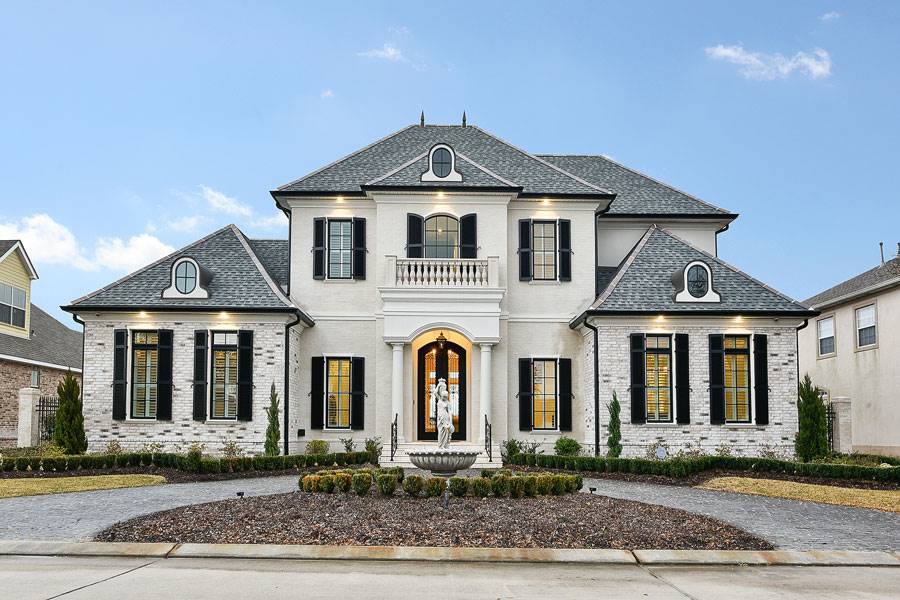Ground leases are different things to different people and bring a varying set of advantages and disadvantages. Below, we check out the types of ground leases, what they are, and how they work. Depending upon your view searching in- whether you are a landlord, residential or commercial property owner, or potential financier, a ground lease takes on an entire new significance.

In a nutshell, a ground lease (also sometimes called a land lease) is an arrangement between a person who owns the land and a person who wishes to develop a residential or commercial property. The financier or residential or commercial property developer pays the landowner a regular monthly rent for the right to develop there.
Specific agreements differ in both worth and time-frame, and the last result can go a number of methods depending on the interests of the celebrations included.
How Do They Work?
The primary step is for a financier to find a piece of land they wish to establish on and approach the owner with terms. A land lease contract turn over the right to construct on the ground over a set variety of years, but all land enhancements at the end of the lease and the residential or commercial property of the landlord.
They are generally long-term leases expanded over at least 50 years, suggesting the owner of the rented land has a stable earnings from the rent the developer or occupant pays.
The ground lease specifies precisely who owns the residential or commercial property and who owns the land during the lease term. It likewise determines who is accountable for the tax problem and any legal issues that may develop during the building. Usually, it is the residential or commercial property owner who takes on this responsibility.
Kinds Of Ground Lease: Subordinated VS Unsubordinated
There are 2 kinds of ground leases: a subordinated ground lease and an unsubordinated ground lease. The primary difference is the regards to financial obligation and what takes place if an occupant defaults. Generally speaking, a property owner needs to promote an unsubordinated ground lease to much better secure their land and residential or commercial property. However, it is simpler for a designer to get financing with a subordinated ground lease.
It is far simpler to get the preparation permission and needed financing for a development with a subordinated ground lease. Because they do not really own the residential or commercial property, they can not offer much security must things go wrong. With a subordinated lease, the proprietor concurs that the bank can have the first claim, implying they take a lower priority in the chain.
If whatever fails, the lender deserves to cease the realty residential or commercial property and foreclose, selling it to pay off the debt. After the debt is paid back, anything left over is passed to the person leasing the land. Naturally, this is dangerous, however often it is the only alternative.
The obvious benefit of unsubordinated ground leases is the far less risky position the landowner discovers themselves in. In case of a tenant default, the land is secured, so the owner can not lose their residential or commercial property. The person leasing land has top place in the claim hierarchy, meaning the lender can not foreclose without property manager approval.
Because of the extra security, banks are not so fast to use financing deals to developers.
Ground Lease Fundamentals
A ground lease structure constantly follows the same essential inclusions:
- Lease conditions need to be plainly detailed with a thorough account of the contract.
- All rights of both the proprietor and the renter ought to be discussed and validated with legal support.
- Financial conditions associating with both the landowner and residential or commercial property developer or occupant for the period of the land lease are set in stone.
- All fees are laid out and agreed upon.
- The lease term (how many years) must be identified before anything is signed.
- What occurs if the occupant defaults? There must be no doubts in this matter.
- Insurances for the title and result at the end of the lease period need to be provided. Although this varies in between each lease, ground leases must include a plan for the eventual end of the arrangement.
Benefits of a Ground Lease Investment
There are lots of advantages of a ground lease for genuine estate financiers, especially those thinking about establishing a commercial residential or commercial property.
The Luxury of Time
Confirming a building loan and completing planning takes some time and delays are not unusual. The ground lease process enables designers some breathing space to get everything arranged and settled without hurrying.

A common ground lease lasts in between 50 and 99 years, which is adequate time to get a task on its feet. Both the residential or commercial property owner and the developer can take comfort in the understanding that time is on their side.

Financial Benefits for Both Parties
The residential or commercial property designer advantages by accessing to an exceptional piece of land that they could otherwise not manage; swapping a hefty up-front payment for the manageable ground rent. As an investor, this is also helpful, as it means there is not as much money needed in advance, meaning less threat all around.
Many residential or commercial property owners and developers also come to equally advantageous financial offers associating with the later phases of the lease, but these are on a case-by-case basis.
Access to Prime Real Estate Markets
Those who are constructing a business residential or commercial property can lease a ground location in a prime area without putting themselves into debilitating eternal dept. Commercial property is extremely rewarding, specifically if you can work out greater rent payments from tenants due to the location and market.
Rent payments from the finished industrial realty residential or commercial property can repay a building loan and leasehold mortgage much quicker if it remains in the ideal location. Securing a ground lease with a cooperative residential or commercial property owner with land right on the bullseye is the golden ticket for lots of business property designers.
Risks of a Ground Lease Investment
Naturally, land leases likewise feature risks- much like any investment chance. Several possible disadvantages come particularly with this type of lease.
Restrictions and Limitations
Different locations have their own structure and real estate laws. Everything from the size of the building to the variety of windows can be controlled by regional councils and regulations. Anybody thinking about buying a land-leased development must thoroughly investigate the regional preparation procedures and how likely they are to have an influence on the success of the project.
Total Costs Over a Long-Term Period
Remembering that a ground lease can last up to nearly a century, the total cost can include up to a lot more than it would need to buy a residential or commercial property outright. Although the lower rent paid on a monthly basis is even more workable than handing over a lump amount down payment, it eventually ends up being a hefty sum in its own right.
Look out for Reversion
Never invest in a development on rented ground until absolutely sure of the precise terms. Some leasehold mortgage rents state that the developers do not maintain ownership of the improvements to the land at the end of the contract.
If the company and investor put money into is going to lose control of a residential or commercial property instead of maintaining ownership, that does not bode well for prospective monetary returns.
There are 2 sides to every coin: the landlords who lease the ground likewise have a central part to play. Entering into a land lease contract also has its ups and downs for the owners.
- Leasing ground provides a consistent earnings stream for a property owner for decades on an otherwise empty piece of land without having to do a great deal of work- what's not to like?
- Most deals include escalation clauses that permit landowners to adjust lease and retain control of expulsion rights if necessary.
- Owners can take advantage of tax savings by renting rather than selling. If sold outright, a proprietor experiences higher tax implications relating to reported gains, which do not use in long-term lease agreements.
- Sometimes the landowner maintains a level of control in the development. In other words, they have a say in what modifications do or do not occur.
Cons
- In some locations, the appropriate taxes might be relatively high for landowners. Although they can experience tax advantages by not offering, having a renter pay rent counts as income.
- If the lease agreement is not well-reviewed, the landlord can wind up losing control of their residential or commercial property and find themselves with little power to do anything about it.
Ground Lease Frequently Asked Questions
It depends upon the contract between the two celebrations.
Yes, it can be, however just if the investor completely investigates the ins and outs of the deals. Delving into a business lease without checking out the fine print can cause difficulty even more down the line. Many big store with corporate growth strategies select to establish through industrial leases, so there is no doubt about the potential an investment might have.
What is the distinction between a ground lease and a typical lease?
A regular lease typically includes an already existing real residential or commercial property owned and constructed by another person. In this case, you merely lease the space. Office structures or shops inside a mall are prime examples of how other leases work.
With a land lease, the main distinction is that you want to develop your own space from the ground up. They are long-term and involve a residential or commercial property deed and a really various set of criteria.
The length of time does a ground lease generally last?
A ground lease can last anywhere in between 50 and 99 years.
Who owns your house developed on the rented land?
The ownership of the residential or commercial property at the end of the lease depends on the regards to the contract. If the designer has paid the residential or commercial property taxes throughout of the lease and the landowner concurs, then they retain ownership at the end of the lease term.

Sometimes the contract mentions that all enhancements to the land are gone back to the landowner when the offer ends, although, over the course of practically 100 years, plans are often made in between the 2 parties.
Ground leases have outstanding prospective advantages for both investors and landowners, as long as the agreements are well prepared and completely examined from both sides.
A ground lease is an official contract between a landowner and someone who wishes to construct residential or commercial property on that land. This arrangement usually consists of some sort of regular monthly lease that is paid to the landowner.









